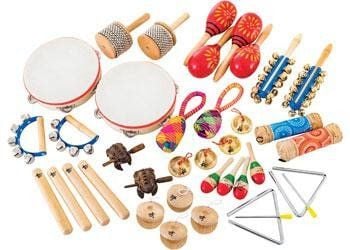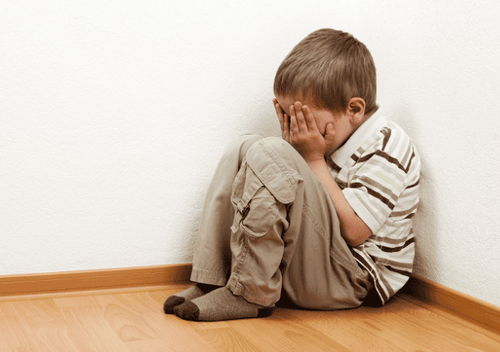This is an automatically translated article.
Content is professionally consulted by Master Music Therapy Technician - Regenerative Medicine Clinic and Educational Psychology Unit - Vinmec Times City International Hospital
Music plays a very important role in our lives and that is especially important for children with autism spectrum disorder. Learning about music therapy for children with autism will help parents have a better way to teach their children.
1. Musical instruments help promote social interaction of children with autism spectrum disorder
A 2009 study by Jennife Whipple found that “During play sessions with music, children with autism socialized better with their peers than in sessions without music. Music for children with autism encourages children to interact in ways that are more appropriate for other children, including sharing.
Unlike using words to communicate, therapists use musical instruments to convey messages and emotions through nuances, rhythms and melodies. And through music, children can dance, ooh, and clap their hands to express their feelings through body language, and can communicate them back to the therapist with eye contact, gestures or facial expressions. face.
Sometimes, with just a small drum, you can create an environment for a child with autism spectrum disorder to interact with others through singing and using drums to represent the individual's steps. objects in the story by tapping hard or lightly on the drum. Or you can also guide your child to use the Xylophone or Piano to harmonize a piece of music under the guidance of the conductor. Paying attention to and feeling the rhythm of the leader's gestures and facial expressions helps children read and learn to perceive nuances, feelings, and expressions by trying to stay in tune to create new music. sounds that blend together to a tune help develop interaction skills naturally and effectively.
2. Musical instruments help children with autism spectrum disorder develop language
A study published in the journal Music showed that singing can significantly improve language skills in language-delayed autistic students and help teach autistic children to practice speaking.
Music can have a positive impact on children with autism in a number of ways, including the use of songs to reinforce speech in autistic students who have difficulty with language. Using the piano and playing short tunes to sing along to (voice training) can help improve the voices of children with autism spectrum disorder in the areas of pronunciation, pronunciation, and vocabulary. Singing can be especially helpful in teaching children to express their emotions effectively.
Besides, the use of percussion instruments such as (Drums, Maracas, bar ...) percussion repeatedly with a short rhythm can attract attention and stimulate communication of children with autism spectrum disorders. naturally and attractively.

3. Musical instruments help children with autism spectrum disorder feel and express emotions
Several studies have shown that singing, drumming or playing an instrument has a beneficial effect on heart rate, respiration and overall health. It is proven to be an effective remedy for depression, anxiety and fatigue.
Musical emotions are not understood in the same way as ordinary emotions. They do not require complex facial expressions or “voices” that are particularly difficult for children with autism to perceive. Children with autism spectrum disorder grasp musical emotions more easily through musical instruments because they are less socially complex.
Children with autism not only have difficulty understanding the emotions of others, but also have difficulty expressing their own emotions. And when they don't know how to express their own feelings, children feel stressed and stressed. Children are easily agitated, cry, tantrums or even hurt themselves.
4. Musical instruments help children with autism spectrum disorder improve concentration
Along with increasing patience, playing an instrument can also improve the concentration of children with autism spectrum disorder. When reading music, children must pay attention to each note as well as notice changes in pitch notation, duration notation, tempo notation, repetition notation, and more. Children always feel curious and excited when playing a musical instrument, this helps to practice concentration when learning and practicing music. Then we will see that children focus better in daily life and study. day.
Playing a musical instrument requires concentration and concentration, which frees the child's mind from other worries. When children are caught up in the song they are playing, they will forget the difficulties and the images that make them feel uncomfortable. Listening to good music that you create yourself can also help children relax and calm down. Playing upbeat music can relieve stress by creating positive emotions and re-energizing.
Children learning how to make sounds from musical instruments is learning how to create music that is a mixture of sounds and silences. Silence provides a space in which sounds entering the ear can be cognitively processed and responded to. It's an opportunity for children to learn to reflect and respond when playing with others, to focus attention, listen, and interact with others through the silence between sounds.

5. Musical instruments help children with autism spectrum disorder develop coordination and motor skills
Learn an instrument that trains your body in new and unique ways. You have to position your hands and arms in the right position to hold the instrument while your fingers move in different patterns to hit the right notes. Wind and brass players must also use precise breathing and blowing techniques to produce the desired sound. As children with autism spectrum disorder learn these new movements, they become more aware of their bodies and develop better body coordination.
Playing an instrument is also beneficial for a child's gross and fine motor skills. Some musical instruments like piano require precise and flexible movements of the fingers and even seemingly easy instruments like drums, bars, dice... still require coordination and control. Good control, this also helps children develop gross motor.
To learn these movements, the child must isolate different parts of the body to practice the movements separately, as well as attract the attention of the whole body to play the instrument. In addition to developing motor skills playing an instrument also helps to strengthen connections between brain hemispheres.
Above are important information about music for children with autism, parents should refer to to get the best parenting method and help children develop normally.
Please dial HOTLINE for more information or register for an appointment HERE. Download MyVinmec app to make appointments faster and to manage your bookings easily.













